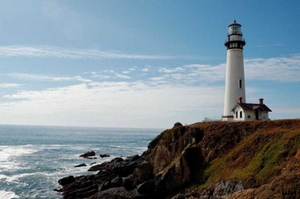Global terrorism versus democracy
Эссе по теме Global terrorism versus democracy
Скачать:
| Вложение | Размер |
|---|---|
| 33 КБ |
Предварительный просмотр:
GLOBAL TERRORISM VERSUS DEMOCRACY
Ивлева Д.И.
ученица 10 «А» класса МБОУ «СОШ №59»
Руководитель: Стригункова М.Д.,
учитель английского языка
Recent history has witnessed the growth of two conflicting trends – democracy and global terrorism. People in the developing countries are ready to fight for their rights and a better democratic future in the civilized world. In this sense, Europe and developed English-speaking countries are ahead and serve as a model for others. Thus, the model of such well-organized society with democratic values is imposed on the developing countries. Hence, when the government of any country decides to follow the way of democratization and, for example, change the existing regime or/and join the EU and NATO, which are considered to be warrantors of national and global security, that’s the moment when we hear the voice of those who choose the other “anti-global” way. Overall, as in the example of Ukraine such opponents are publically called “terrorists” and, therefore, are subject to total and merciless liquidation. So where is the borderline between democracy, which takes into account every individual opinion, and terrorism, which seeks to deprive people of any choice? In my essay, I would like to investigate and contrast these juxtaposed concepts.
To start with, let’s define the meaning of both concepts. Dictionary definitions say that “democracy” is characterized by free election and voting, freedom of speech, religion and political opinion, equal rights for all citizens without social class divisions. Near antonyms are despotism, dictatorship, monarchy, monocracy, totalitarianism, tyranny. If we continue that row of antonyms, we will certainly write “terrorism”. Terrorism has a complicated definition. Originally Latin, this word came into use in 1795, in specific sense of "government intimidation during the Reign of Terror in France" (March 1793-July 1794). The revolution leader Robespierre said the following in this respect: If the basis of a popular government in peacetime is virtue, its basis in a time of revolution is virtue and terror: virtue, without which terror would be barbaric; and terror, without which virtue would be impotent [Robespierre, speech in French National Convention, 1794]. Among the variety of definitions of the term are: to create regular social activity difficult; to make high image impact on the public with the goal of destroying public confidence in their own government; to seek revenge on everything without justice; to cause as much casualties as possible; and to make physical suffering and cause psychological emotions, such as a sense of grief, anxiety, fear, unrest, chaos, anger and panic. Terrorism in reaction to political power or ideology is not a new phenomenon. This type of political violence and crime has occurred since the dawn of human chronicle. The nature of this form of political conflict has changed over time, though, developing from domestic activities to regional and international events. Because of this, terrorism has become an experience shared by many individuals, organizations, and states. Here it’s important to point out that although these groups have no formal connection with governments, they usually have the financial and moral backing of sympathetic governments.
Admittedly, the events on September 11, 2001 in New York not only inflicted thousands of casualties and significant economic damage, but also marked the beginning of a new era of terror in which counter-terrorism has become one of the highest priorities for international institutions and national governments. Thus, global terrorism has spilled beyond national boundaries and has become a severe actuality in society, causing international instability and mass terror.
Since terrorism is viewed as the main challenge to global security, then it’s easy to unleash new wars in order to restore law and justice in states, where civil rights and the wish of self-determination are oppressed by terrorists. The only problem with democratic governments in such situations is the modality these events are reported and analyzed in mass media. And what we ultimately have is the information war of two polarities, each of which plays with mass opinion. Under the circumstance of artificially created polarities, the conflicts remain unsolved, thousands of refugees leave their homes, human rights are being violated, natural resources, such as oil, become the target and small coin for terrorists and those who back these puppets up.
Objectively and unfortunately, people are thrown into a dilemma: which of the two evils to choose – terrorism or democracy; in either case they will get both. So more often than not it seems that one cannot exist without the other. I mean that today’s terrorism with its revolutionary approach has become a tool for democracy to spread its influence under the motto of democratization, and thus suppress those who are against it. According to David Icke, the proven scheme of Problem – Reaction – Solution is simple and genius at the same time. In this context, democracy is striving to its dialectical opposite, i.e. tyranny. In ancient times Plato compared democratic regime with a blood-sucker, which got into a healthy body of a perfect state, causing its degeneration from the Golden Age into slavery. He conceded that democratic laws, written and non-written, cease to be respected by the people, consumerism becomes a norm and religion; people grow more and more selfish and divided. In the end, instead of freedom for all, democracy turns into an extreme degree of slavery, when the tyranny of demos is expressed through the tyranny of one man.
In my opinion, although the ideals of democracy aim at universal equality, in fact what we see in reality is sharply different from them: specifically, people are divided into masters and those who serve them, the rich and the poor; the adopted laws abuse moral and ethical standards in a family and in the society; the financial burdens of credits thrall people generation by generation; most people do not trust the authorities because of extreme corruption; and they try to survive instead of to live.
What went wrong? To find the way out, it’s time to change our way of thinking, to wake up our sense of conscience and to listen to it when taking decisions. If people had acted in tandem with their heart and conscience, they wouldn’t have found themselves in the present suppressed condition. When this happens, people will become wiser and will be able to overcome democratic tyranny and its terrible weapon terrorism.

Два морехода

Выбери путь

Тупое - острое

Компас своими руками

Скворечня
